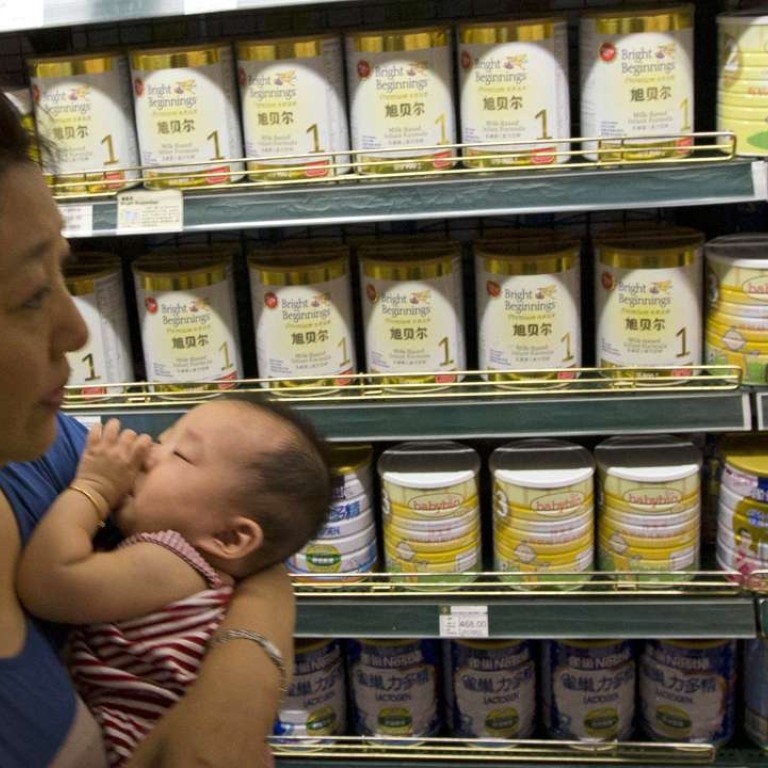
Mainland parents urged to buy local baby formula because many foreign brands ‘are less suitable’ for Chinese babies
A recent study by China Central Television finds that eight imported formulas contain levels of vitamins and minerals that don’t meet local standards
China’s state television has called on mainland parents to buy domestic baby formula by claiming that many foreign brands could hurt their infants because levels of certain nutrients were inconsistent with Chinese standards.
A recent study by China Central Television found that eight out of 19 foreign baby formulas made by 18 foreign manufacturers that are popular with mainland mothers have “harmful levels” of vitamins and minerals because that do not meet the specific needs of Chinese babies even though they comply with foreign standards.
The report comes as more and more mainland parents are buying formula made overseas via booming online retail sites while half of China’s dairy farms are suffering from losses.
Many consumers brushed aside CCTV’s findings.
“It’s really splitting hairs to say the slight difference among different countries’ standards can harm babies’ health. Even breast milk varies widely from one mother to another,” said Cao Mingshi, deputy secretary general of the Shanghai Dairy Association.
The programme, aired on CCTV-2 on Friday, picked 19 popular brands from seven countries including Aptamil, Nutrition and Abbott, that were sold on leading retail sites, and sent to an independent laboratory to be tested.
The products were tested to detect levels of 12 mineral compounds, 13 vitamins and two contaminants. Eight products were found to have non-standard levels of certain nutrients, but none contained either the two contaminants.
Three products made in the United States, which sets only a lower limit for iron in baby formula but no upper limit, were found to have excessive iron, while one from Japan, whose people eat a lot of seafood, had too little iodine.
The report said the deficiencies found in the tests were the result of different standards in different nations, according to the local nutrition and dietary habits. If a Chinese baby consumed such formula over a long time, it child could develop certain health problems.
Parents were therefore urged to reconsider domestic brands.
Cao agreed that domestic formula was specially designed for Chinese children, and were produced to a good set standards, but it was hardly worth worrying about foreign brands just because of fairly minor differences in their nutritional content.
“Certain nutrients such as iron and iodine are not just absorbed between age 0 and 3, and not just through milk,” said Cao.
Carol Jin, a mother of two in Beijing who has bought baby formula from online shops or friends overseas, said she the CCTV findings would not make her switch back to domestic brands.
“I’m aware that different countries have different standards for baby food, and that China’s are quite strict in this regard,” Jin said. “What’s important is that there are too many companies here who ignore the standards.”
Public confidence in Chinese dairy products has remained low since the melamine tainting scandal of 2008. At the same time, cross-border e-commerce has made buying foreign brand formula cheaper and more convenient.
The slump in consumer confidence has taken its toll on the domestic industry, with about half of the nation’s dairy farms reporting losses as manufacturers turn increasingly to more competitively priced producers abroad, Thepaper.cn reported.
There has been a growing oversupply of raw milk on the mainland since 2014 and the phenomenon has spread from small farms to bigger ones, a professor at the China Agricultural University told the Thepaper.cn.
The growing gap in production costs was another problem. In 2013, raw milk from New Zealand was 0.43 yuan per kilogram cheaper than domestic Chinese milk. Now it was 2 yuan per kg cheaper, he said.


